Period In 中文 🩸
Period in 中文 🩸

月经 (yuè jīng) period
老朋友 (lǎo péng you) period (slang)
大姨妈 (dà yí mā) period (slang)
例假 (lì jià) menstrual leave (euphemism) , menstrual period
月经没来 (yuè jīng méi lái) to miss one’s period
来月经 (lái yuè jīng) to have a period
换… (huàn) to change, to exchange (sanitary towel/tampons/menstrual cup)
卫生巾 (wèi shēng jīn) sanitary towel /pad
姨妈巾 (yí mā jīn) sanitary towel (coll.)
卫生棉条 (wèi shēng mián tiáo) tampons
月经杯 (yuè jīng bēi) menstrual cup
月亮杯 (yuè liang bēi) menstrual cup
绞痛 (jiǎo tòng) cramps
痉挛 (jìng luán) cramps (med. term)
偏头痛 (piān tóu tòng) migraine
昏厥 (hūn jué) to faint
妇科 (fù kē) gynaecology
阴道 (yīn dào) vagina (med. term)
卵巢 (luǎn cháo) ovary (med. term)
荷尔蒙 (hé ěr méng) hormone
乳房 (rǔ fáng) breast (med. term)
乳房胀痛 (rǔ fáng zhàng tòng) tender breast
血 (xuè) blood
子宫 (zǐ gōng) uterus
心情变化 (xīn qíng biàn huà) change of moods
经前综合症 (jīng qián zōng hé zhèng) PMS (premenstrual syndrome)
更年期 (gēng nián qī) menopause
止痛药 (zhǐ tòng yào) Painkiller
热水袋 (rè shuǐ dài) hot-water bottle
~ My Chinese studygram ~
More Posts from Lia-kotik-blog and Others
Reading rec list for chinese learners. This is not exhaustive, if you find stuff that works for you then go for it! This is also not perfect, you may find stuff a bit easier or harder is more ideal for you. (By "know" below I mean you recognize the word as familiar, have studied or looked it up at some point, and so if you need to look it up again in reading you will learn it longer term fairly easily because of the repeated exposure to it in reading).
Know ~500 words?
Mandarin Companion Graded Readers. I recommend the Sherlock one, and the Journey to the Center of the Earth one. All Mandarin Companion books are excellent for beginners though.
Pleco Graded Readers - I recommend The Butterfly Lovers. There are a lot of Pleco Graded readers though, so you can pick based on amount of unique words (some Graded readers on Pleco go up to 2000 unique words).
Know ~1000-1500 words?
Sinolingua Chinese Graded Readers. There are several, and I started with the 500 word one. They somewhat match up with HSK and I found them more challenging than the Mandarin Companion graded readers. They have a vocabulary list in the back of the book and footnotes to help you study. They are a good bridge to get you from graded readers to other materials. I found the 1000 and 2000 word book equally difficult.
Pleco Graded readers, which include readers from 1000-2000 unique words.
Start delving into manhua! If you're ready and feel like it! Easier manhua will be slice of life setting ones, and ones based on something you're already familiar with. So if you've watched the Untamed or read 魔道祖师, then the manhua will be easier for you. If you've watched The Lost Tomb Reboot, then try out the slice of life comedy manhua spin off 盗墓笔记重启日常向 https://m.ac.qq.com/comic/index/id/649452. My Story 他们的故事 is a gl manhua which is slice of life and easy to read, as is 19天. There's also more genre specific manhua which I waited a bit to read, but if you're familiar with the story they may be doable like 2ha's manhua and 破云 manhua.
Know ~1500-2000 words?
Start getting into easier novels. Suggestions include 活着 (anything by this author is often recommended to learners, I have not actually read anything by him yet), 小王子 (this was my first not-graded-reader novel I finished reading in chinese, it was a bit challenging, I used a english/Chinese copy so I could look up words occasionally), 笑猫日记: 会唱歌的猫 (I highly recommend this series of books, they're for kids and fairly straightforward, set in a city so decently useful words are used, with a lot of chengyu that's commonly used so they're worth learning, I read 2 of these novels), 他们的故事 by 一根黄瓜丝儿 (a bl novel that's first person, generally uses a lot of common daily life words, and is fairly straightforward, I've read half and it was the first real novel I tried to read in chinese). These novels can be tried earlier on if you're more willing to use a click dictionary, which is what I did (except for 小王子 since I had a print copy). 论如何错误地套路一个魔教教主 The Wrong Way to a Demon Sect Leader (a fairly easy wuxia bl read).
Also in general anything you've read before in a language you understand, is going to be easier to read in chinese than something brand new.
Feeling brave? Up for a challenge?
撒野 and anything by that author uses a lot of more everyday language and is an easier read than some other webnovels. 盗墓笔记 does not use particularly hard language outside of the tomb genre words which if you're reading then you need to look up and learn anyway eventually (the slang in it is a bit hard but also worth learning so the cursing etc trips you up less later in other stuff you read), if you've seen the show before its doable to read. Scum Villain Self Saving System is on the easier end of mxtx novels to read, especially if youre already familiar with the plot.
Know ~2000 words?
The same novels as before apply. But now you may need a dictionary a bit less. Stuff like 撒野 will now be a bit less difficult, still challenging. Now other novels will start to be doable as desired, if you're using a dictionary. So go have fun looking into whatever webnovels you're interested in.
(I made a list of difficulty ratings of various webnovels in my rec list tag, you may want to check out that list. A quick gadget though is like... 撒野 author is easier than 盗墓笔记 author, then mxtx, then priest (and tian ya ke and zhenhun are easier than silent reading and sha po lang), and poyun was higher on the difficulty scale, 2ha was fairly hard. Basically the more vocabulary or thicker the paragraphs, the harder it's gonna be. Or the less familiar you are with a given genre).
At ~2000 words or more I'd say reading with a click dictionary feels quite doable, although a slog if you pick a harder novel so gauge what feels an okay level for you personally to read. And if you feel like reading without a dictionary, you'll have to explore a bit to see what's comprehensible to you without one.
reading web novels/articles for traditional chinese mandarin language learners
if you’re like me and want to eventually make reading your primary way of learning chinese characters, you’ll notice that a lot of the resources online are using simplified characters. new tong wen tang (chrome; firefox) is a browser extension that will help you convert webpages between simplified and traditional chinese. and regardless of the writing system, another helpful extension to have is zhongwen (chrome; firefox), which adds the ability to hover over a chinese character and see a pop-up containing the pinyin and english translation of a word.
before enabling the two extensions (notice how everything is in simplified!):

after enabling new tong wen tang and zhongwen (text has been converted to traditional chinese and doesn’t interfere with zhongwen’s pop-up dictionary):









chinese hanfub by 瞳莞汉服
Some chinese resources (found in this article: https://kaohongshu.blog/2019/12/03/should-i-read-chinese-texts-above-my-level/
Where do I find suitable online reading resources?
Free online resources:
My Chinese Reading (all levels) *I’ve used this it’s great, especially as graded reading material that gradually increases in difficulty in a manageable way
Mandarin Bean (all levels)
HSK reading (all levels) *Just looked, seems good for finding graded reading material specific to HSK level
Chinese Reading Practice (all levels) *I’ve used this, also great for graded reading material that manageably increases in difficulty
Just learn Chinese (all levels)
The Marco Polo Project (advanced)
Mandarin version of the New York Times (advanced)
BBC news in Mandarin Chinese (advanced)
Chinese news from Deutsche Welle (advanced)
Project Gutenberg in Chinese (highly advanced)
An Annotated Collection of Digitized Chinese Texts for Students of Chinese Language and Culture (highly advanced) *I’m looking at this right now and a ton of useful material
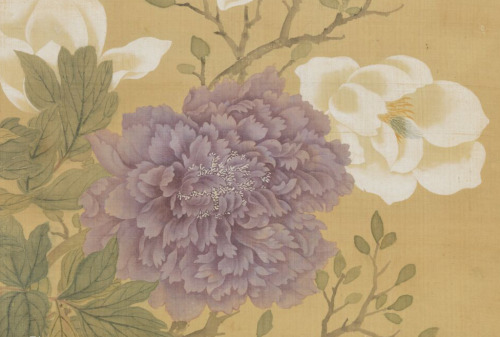
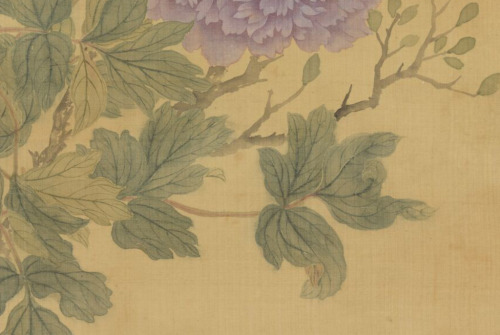

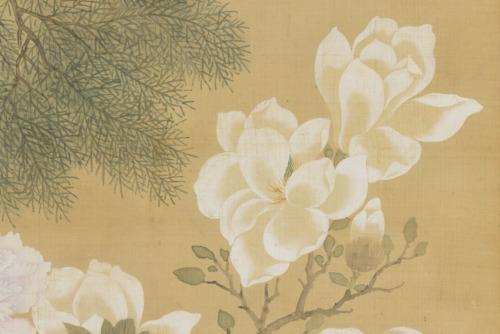

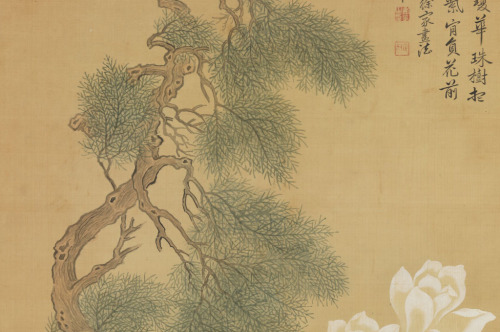



chinese artist 恽寿平 yun shouping (1633-1690)

Health is wealth!
best video ever
I don’t know what this is all I know is that I can’t stop thinking about it

I read entire books as part of my Chinese study routine + this often provokes shock or surprise from other learners, so here I outline how I got to this point and why + how you can do it too but with less pain! Also down to field questions lol I love talking about language learning




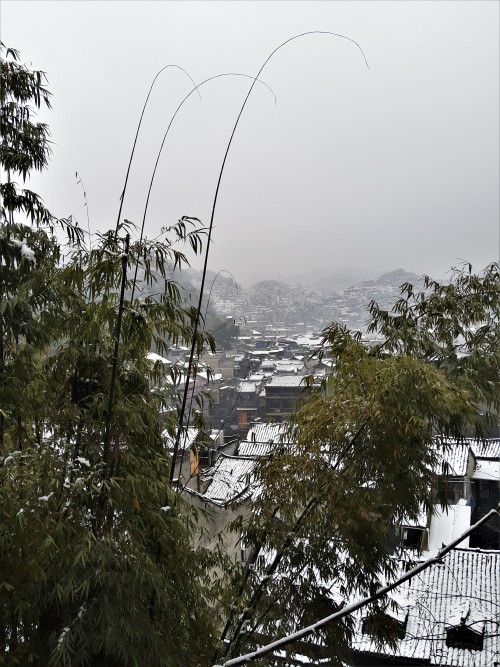

Winter in Fenghuang, Hunan
看電視劇學中文:【開端】 第三集 【2/2】
這是第二部分,來自:【開端】 第三集 20:00-40:00 // 第一部分在這裡 你們可以在Youtube看:这里 看電視劇學中文Learn Chinese With a TV Series by Leila老師
單詞:(绿色=HSK4; 蓝色=HSK5; 紫色=HSK6)
反复 (-覆) / fǎnfù / repeatedly, over and over
药检 (藥檢) / yàojiǎn / drug test
惯 (慣) / guàn / to spoil
负担 (負擔) / fùdān / burden
从始至终 (從--終) / cóng shǐ zhì zhōng / from the start to the end
唯一/ wéiyī / only
相信 / xiāngxìn / to be convinced sth is true; to believe
交代 / jiāodài / to hand over; to explain; to brief (someone)
达成 (達-) / dáchéng / to accomplish
共识 (-識) / gòngshí / consensus
插曲 / chāqǔ / interlude (music); episode
必然 / bìrán / inevitable
炸药 (-藥) / zhàyào / explosive material or charge
痕迹 (-跡) / hénjì / mark, trace
倒计时 (-計時) / dàojìshí / countdown
装置 (裝置) / zhuāngzhì / device; to install
眼皮底下 / yǎnpídǐxia / right before one's eyes
资料 / zīliào / material, resources
人际关系 (-際關係) / rénjìguānxì / interpersonal relationships
不良 / bùliáng / bad, harmful, unhealthy
嗜好 / shìhào / habit
心理防线 (---線) / xīnlǐfángxiàn / psychological barrier
硬 / yìng / hard, stiff, firm, strong
性质 (-質) / xìngzhì / nature; characteristic
指使 / zhǐshǐ / to prompt, incite
套话术 (-話術) / tàohuàshù / testimony
依然 / yīrán / still; as before
指认 (-認) / zhǐrèn / to identify
采纳 (採納) / cǎinà / to accept
供词 (-詞) / gòngcí / confession; statement
残留物 (殘--) / cánliúwù / leftover, remains
检测 (檢測) / jiǎncè / to examine
薄 / báo / weak, thin, flimsy
没凭没据 (沒憑沒據) / méipíng méijù / no evidence (var. 无凭无据)
下面有句子:
我们会反反复复地过着一整天。We will repeatedly experience the same day.
准备药检。Prepare the drug test.
老张还是太惯着你了。 Mr. Zhang is spoiling you.
你有很重的心理负担。You have a heavy burden (in your heart/mind).
从始至终我没有向你做过自我介绍。This whole time (from start to finish) I never introduced myself to you.
对你来说,相信警察,诚实把交代问题是你的唯一的选择。For you, believing in the police and answering questions honestly is your only choice.
我们终于达成了共识。We finally reached a consensus.
公交车被引爆这才是必然。The bus exploding was inevitable.
你们是不是可以找到一些炸药的痕迹。 Could you find any trace of a bomb/explosive material?
倒计时装置是它的铃声。The countdown system is the ringtone.
在我们眼皮底下演这么一出,从目前掌握的资料来看两个人的人际关系简单。From what we see before us from the resources we've currently have, these two people have simple social histories.
没有不良嗜好。Don't have bad habits.
实际心理防线硬着呢。Really (her) psychological barrier is strong.
那可是完全不同的性质。That could be a completely different characteristic.
她指使你骗出了这个套话术。She incited you to lie on this testimony.
如果你依然不肯如实地告诉我们的话,我们最后只能采纳他指认你是案一的供词。If you still won't agree to honestly tell us (the truth), (then) we have no choice but to accept his identification of you as the case's only confession.
事故现场检测出了爆炸残留物。At the accident site, examine the explosion's remains/residue.
心理防线薄。Weak psychological barrier.
没凭没据什么关我。There is no evidence that it was related to me.
-
 thaeon liked this · 1 year ago
thaeon liked this · 1 year ago -
 naanavi liked this · 1 year ago
naanavi liked this · 1 year ago -
 justagirlwaiting liked this · 1 year ago
justagirlwaiting liked this · 1 year ago -
 cherryvampyyri reblogged this · 1 year ago
cherryvampyyri reblogged this · 1 year ago -
 lounadelaluna liked this · 1 year ago
lounadelaluna liked this · 1 year ago -
 suxiyanssimp reblogged this · 1 year ago
suxiyanssimp reblogged this · 1 year ago -
 venusdestroyed liked this · 1 year ago
venusdestroyed liked this · 1 year ago -
 luzlenguaje reblogged this · 1 year ago
luzlenguaje reblogged this · 1 year ago -
 eduxlv liked this · 1 year ago
eduxlv liked this · 1 year ago -
 phemaly reblogged this · 1 year ago
phemaly reblogged this · 1 year ago -
 kunny-san liked this · 2 years ago
kunny-san liked this · 2 years ago -
 cutsandsunflowers liked this · 2 years ago
cutsandsunflowers liked this · 2 years ago -
 giuliaisstudying liked this · 2 years ago
giuliaisstudying liked this · 2 years ago -
 thejoyoflearninglanguages liked this · 2 years ago
thejoyoflearninglanguages liked this · 2 years ago -
 roooonnaar liked this · 2 years ago
roooonnaar liked this · 2 years ago -
 thecheekbonesquad liked this · 2 years ago
thecheekbonesquad liked this · 2 years ago -
 chineselangblr liked this · 2 years ago
chineselangblr liked this · 2 years ago -
 sammy-2204 liked this · 2 years ago
sammy-2204 liked this · 2 years ago -
 starsinplainsight liked this · 2 years ago
starsinplainsight liked this · 2 years ago -
 thiswilldragon liked this · 2 years ago
thiswilldragon liked this · 2 years ago -
 helendamnationx reblogged this · 2 years ago
helendamnationx reblogged this · 2 years ago -
 twinklingstrawberries liked this · 2 years ago
twinklingstrawberries liked this · 2 years ago -
 takeamunchofthegoodcrumch liked this · 2 years ago
takeamunchofthegoodcrumch liked this · 2 years ago -
 potentiallypolyglot liked this · 2 years ago
potentiallypolyglot liked this · 2 years ago -
 tingtingzaixuexi reblogged this · 2 years ago
tingtingzaixuexi reblogged this · 2 years ago -
 the-starry-messenger liked this · 2 years ago
the-starry-messenger liked this · 2 years ago -
 yinlotus reblogged this · 2 years ago
yinlotus reblogged this · 2 years ago -
 study-with-bennett reblogged this · 2 years ago
study-with-bennett reblogged this · 2 years ago -
 hamster-is-tired liked this · 2 years ago
hamster-is-tired liked this · 2 years ago -
 cdrmareviews liked this · 2 years ago
cdrmareviews liked this · 2 years ago -
 deshabit liked this · 2 years ago
deshabit liked this · 2 years ago -
 ceislearning liked this · 3 years ago
ceislearning liked this · 3 years ago -
 yu-dreams reblogged this · 3 years ago
yu-dreams reblogged this · 3 years ago -
 creekchubsucker liked this · 3 years ago
creekchubsucker liked this · 3 years ago -
 binntou reblogged this · 3 years ago
binntou reblogged this · 3 years ago -
 binntou liked this · 3 years ago
binntou liked this · 3 years ago -
 eternallyyours666 liked this · 3 years ago
eternallyyours666 liked this · 3 years ago -
 lia-kotik-blog reblogged this · 3 years ago
lia-kotik-blog reblogged this · 3 years ago -
 lia-kotik-blog liked this · 3 years ago
lia-kotik-blog liked this · 3 years ago -
 polyglot-thought reblogged this · 3 years ago
polyglot-thought reblogged this · 3 years ago -
 jovial-gender-jester liked this · 3 years ago
jovial-gender-jester liked this · 3 years ago -
 lil-cherry reblogged this · 3 years ago
lil-cherry reblogged this · 3 years ago -
 brucewang95 liked this · 3 years ago
brucewang95 liked this · 3 years ago